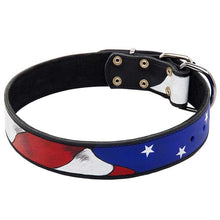Things You Must Do Before Breeding Your Dog

Breeding a dog is one of the biggest responsibilities a human being can undertake. You're bringing new, innocent life onto this planet that never asked to be here and deserves the very best in life. Before breeding a dog, or selecting a breeder to buy a puppy from, make sure you do these things first. All of these things.
Look at the dog and be honest. German Shepherds are beautiful dogs, but not all German Shepherds meet the breed standard. Is your dog shorter than 22 inches as a female or 24 inches as a male at the shoulder? If so they're not in standard. Can you breed a dog who is smaller ethically? Sure, as long as they're just outside of standard and you know what you're doing. If you don't, then don't. Your customers are going to be upset if the puppy they buy doesn't meet breed standards. Same goes for the maximum height of 24 inches for females and 26 inches for males. They wanted a German Shepherd. If they wind up with an Arabian horse, they didn't get what they were promised. That goes for weight as well: 50-75lbs for females, 65-90lbs for males is roughly the standard. If your dog is much smaller, or bigger than that, they don't meet the standard, and they may not even be healthy enough to breed safely.

So have a look at the dog. Does it have a strong head, and not a pointy, narrow one? Are the ears set well and proportionate to the head? Is the dog in standard for coloration, and are those colors deep, and rich? Are the eyes dark brown and the correct shape? Kennel Blindness refers to someone who loves their dog and thinks they're perfect so they breed them. Your dog is very likely perfect for YOU. But are they a perfect candidate to breed? Be honest. Ask for the opinions of other respectable, reputable breeders and tell them not to hold back.
Observe the dog. Does the dog move freely and effortlessly, covering a lot of ground with every stride as he should? Is the dog afraid of thunder or fireworks? Because if he is, that's not a good candidate to breed. German Shepherds are working dogs. They should have nerves of steel. Loud noises, new people, new sights and smells, slippery floors, other dogs or whatever the case may be shouldn't spook them. Imagine herding sheep in from the field to avoid a storm and a clap of thunder sends your dog running 3 counties over. Imagine using a dog as a police or military dog and it runs and leaves you because it heard gunfire. Stable temperament and nerve are not optional for this breed. Nor is trainability, intelligence, or working aptitude.

Get a thorough vet checkup and hip and elbow x-rays. You shouldn't breed a dog with a bad heart, or kidneys, or pancreas for obvious reasons. But in German Shepherds, having hips and elbows that are OFA Fair or better is non-negotiable. If you breed these dogs without hip and elbow x-rays, you are not an ethical breeder. Also, if you have hips protected under your puppy contract, you will be refunding a lot of money and/or giving away a lot of free puppies in return. People will talk and you will find it very difficult to sell puppies again. Hip Dysplasia can occur in any litter, but you want to lessen the chance and have proof you did everything you could to prevent it. And if you buy a puppy whose parents don't have hip and elbow x-rays, make sure you have plenty of money saved up for treatments and surgeries.
German Shepherds are notorious for bad joints, and if you're not testing your dogs before breeding, you're contributing to the problem. Yes, it's expensive. You might even have to drive a couple of hours to find an experienced orthopedic vet if you don't trust yours to take x-rays properly (the dogs must be positioned very specifically). But if you can't afford it monetarily or time wise, you shouldn't be breeding, because the puppy checkups aren't cheap either. Well Puppy exams are mandatory before shipping a puppy or dog, and mandatory before selling a dog in many states and localities. And if time is the issue, oh boy, just wait until you're up every couple of hours to check on mom and the puppies, or have to load them all up for a visit to the vet, or letting your dog out to use the bathroom after she's whelped a litter every 15 minutes.
CERF eye testing isn't mandatory, but it helps, and can be performed during the same visit you have blood work done and the joints x-rayed.

Degenerative Myelopathy testing isn't mandatory, but do it. Scientist need the samples for research, and your customers will curse your name and make sure everyone knows what they think of you if you sell them a puppy that develops DM. You will likely find it very difficult to ever sell another puppy after that.
If your dog doesn't pass the looks test, the behavior observation, or the health tests, that's fine. You still have a great dog. But in the interest of the dog, your perspective customers, and the breed, you shouldn't breed that dog.
Thanks for reading everyone. Sorry if this article comes across as somber. It isn't intended to be taken that way. But again, breeding is serious business. Dogs die during whelping. Puppies die before, during and after birth. Puppies develop genetic issues, and those puppies wouldn't exist if their breeders didn't breed their parents. This is the biggest responsibility you can take on when owning a dog and you should take it seriously. Things will go wrong eventually, and you'll feel horrible. Take this decision seriously and prepare yourself. Breeders know the highest of highs and the lowest of lows. Stay safe, and leave a like and share.
You may also like: How To Prepare For Your New German Shepherd Puppy
























